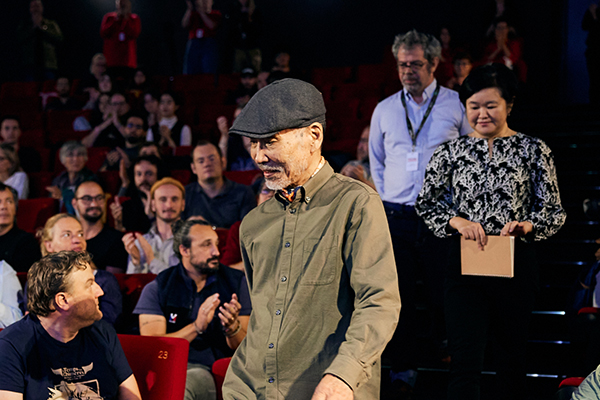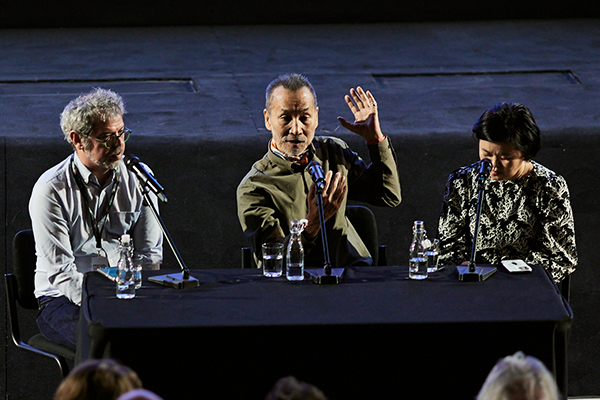Rintaro :
« The French version of
Space Pirate Captain Harlock was a shock!
PostED ON 21.10.2023
Upon discovering the Soviet film, The Stone Flower at the age of eight, the future creator of Space Pirate Captain Harlock was struck by the beauty of the cinema. This week, Rintaro opened up to the festivalgoers about his extraordinary career.
DISCOVERY OF EUROPEAN CINEMA
My father introduced me to Western cinema; he dreamt of cinema but was affected by the war. He used to go to an art house cinema and take me to see French and Italian films, some of which were not at all suitable for children because I was only thirteen. I even wondered if my father wasn't trying to educate me about sex in this way! When a thirteen-year-old watches foreign films with subtitles, it's always a bit difficult to read, so what interested me most was the buttocks of Western women! My first shock was when I saw Silvana Mangano in Bitter Rice (1949). I love Simone Signoret because I like femme fatales and women with character.

© Léa Rener
THE IMPORTANCE OF MUSIC
Cinema is a complete art: there's the script, the set, the characters, but among all these elements, the music holds a special place, as much as the image. Even before writing the storyboard, I think about the music. I've been inspired by many things, but above all by French film noir and modern jazz - Art Blakey and the Jazz Messengers, Miles Davis. Kurosawa's use of music in Seven Samurai is exceptional. I always listen to Pink Floyd and Johann Sebastian Bach for inspiration. After that, it's as if musical information comes to me from heaven.
SPACE PIRATE CAPTAIN HARLOCK
One day I was told that Space Pirate Captain Harlock was a big success in France, which was really unexpected for me. Much later, I watched the French version and it was a big shock. I can honestly say that I've always loved the use of music in French films, but when I saw the French version, it had nothing to do with the original. For example, there's a shot where we see Captain Harlock from the back and I'd used very soft, calm music so that we could sense his character, his inner self. In France, we hear very lighthearted and joyful music, which was a shock for me.
 © Léa Rener
© Léa Rener
CHANGE AND CONTINUITY
As an artist, I had a big complex that I didn't dare talk about: I get bored easily. If I do one thing, I move on to something else. But I was convinced that artists had to have a certain continuity. It almost became an ordeal, but a Japanese painter, a very great artist, once said that he got bored easily and liked to change his style with each painting. When I heard this, I said to myself that I could be like him - and I felt less self-conscious.
Reported and edited by Charlotte Pavard
© Olivier Chassignole

